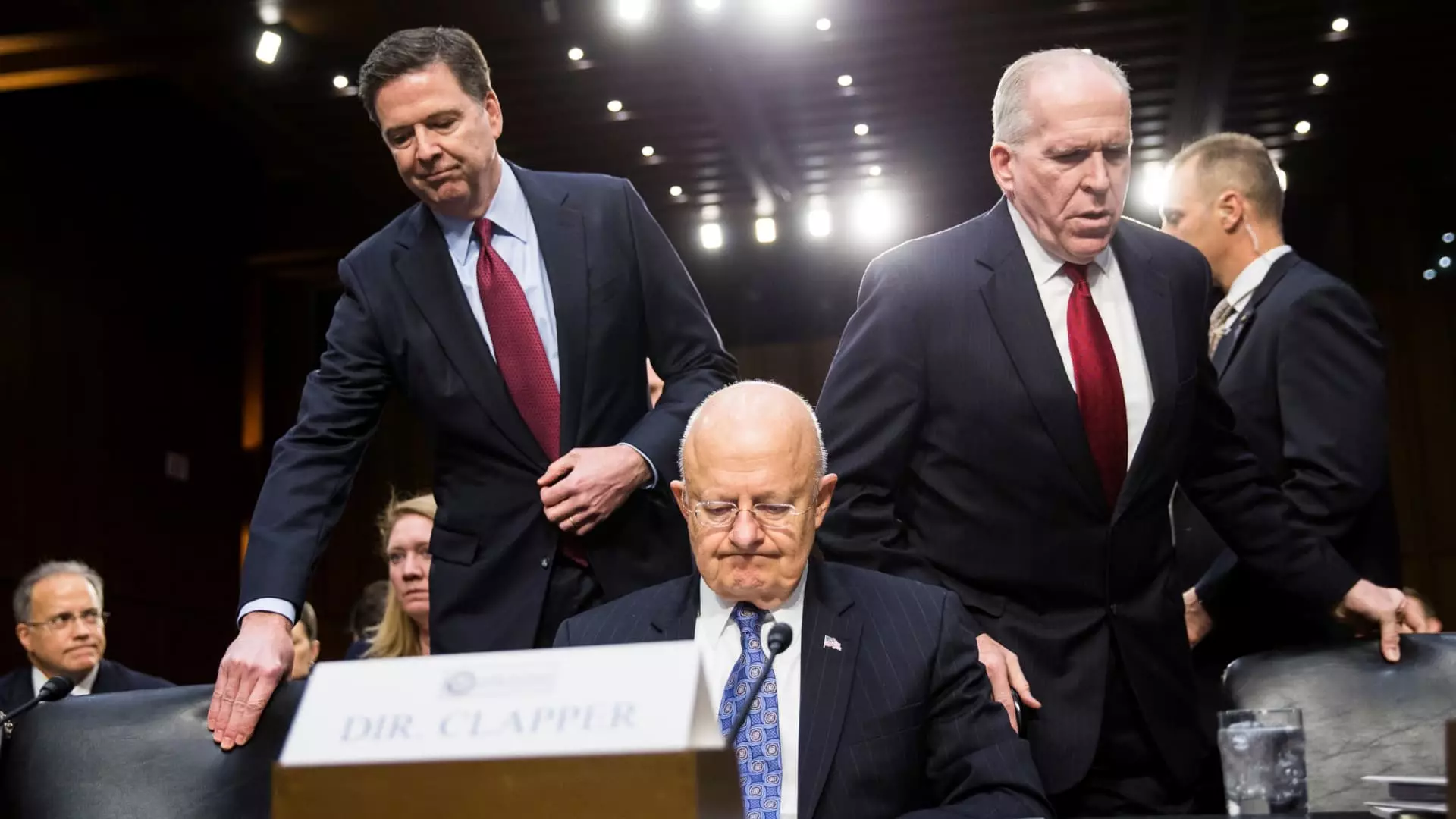The continued targeting of prominent figures like John Brennan and James Comey by the current Justice Department reveals a disturbing trend: the politicization of legal authority. While accountability is crucial in a civil society, weaponizing investigations to serve partisan interests undermines the very foundations of justice. It appears that the administration is framing former intelligence officials not as individuals accountable for misconduct but as scapegoats for political agendas. This selective pursuit of certain figures, while seemingly ignoring others, reveals a troubling imbalance that risks eroding public trust in legal institutions. When investigations are perceived as politically motivated, the rule of law itself becomes compromised, casting a long shadow over democratic integrity.
Selective Justice and the Erosion of Civil Liberties
The vague and inconsistent nature of these investigations signals a troubling shift towards selective enforcement, where allegations serve as tools for political retribution rather than justice. The fact that there are no clear charges or detailed reasons for these probes, especially against figures like Comey and Brennan, raises questions about their legitimacy. Their past roles as top intelligence officials make them convenient targets, but it also raises concerns about due process. A balanced justice system must protect individuals from arbitrary investigations driven by political vendettas. Instead, we see a pattern that threatens to silence dissenters and foster a climate of suspicion, where powerful figures are constantly scrutinized under a politically charged lens.
The Dangerous Consequences of Political Interference in Intelligence and Law Enforcement
Paradoxically, these actions could backfire by fueling paranoia and further destabilizing national institutions. Targeting former officials based on unsubstantiated claims risks chilling whistleblowing and honest discourse within intelligence agencies and the broader justice system. When political actors appear to wield the justice department as a weapon against rivals or perceived enemies, they undermine the independence necessary for effective governance. This cycle not only erodes confidence among the public but also endangers the impartiality that safeguards democratic processes. The recent focus on the Epstein case, and the questionable handling of related documents, exemplifies how the judiciary and law enforcement can become battlegrounds for political combat rather than avenues for truth.
Power and Manipulation: The Real Threat to Democracy
The motivations behind these investigations go beyond mere accountability; they reflect an attempt to manipulate narratives around the previous administration. By casting figures like Comey and Brennan as wrongdoers, the current authorities seek to rewrite history and justify politically motivated actions. Such tactics foster cynicism, suggesting that justice is contingent upon political convenience rather than objective standards. If law enforcement agencies become instruments of partisan warfare, democracy suffers as public confidence diminishes. The danger lies not just in individual cases but in the broader implication: when justice is weaponized, it opens the door to authoritarian tendencies masked as legitimate oversight.
Between Accountability and Political Coercion
Idealistically, holding public officials accountable is a cornerstone of democratic governance. Yet, when these efforts are internally corrupted by bias and favoritism, they become tools for political coercion. It’s important to recognize that the administration’s focus on figures like Brennan and Comey, amidst other controversies, appears less about transparent justice and more about consolidating political power. Moving forward, safeguarding judicial independence must be a central priority. Otherwise, we’re merely witnessing a shift from a system based on rule of law to one where law is wielded selectively, enhancing division instead of unity.
This situation emphasizes the need for a critical, principled approach to justice—one that resists the siren call of partisan gain. Without this, the sacred promise of accountability devolves into a tool for consolidating power and silencing opposition. Instead of healing national wounds, this politicized judicial crusade risks deepening the chasm within American democracy, all the while underscoring how fragile our institutions become when used as weapons rather than arbiters of fairness.


Leave a Reply